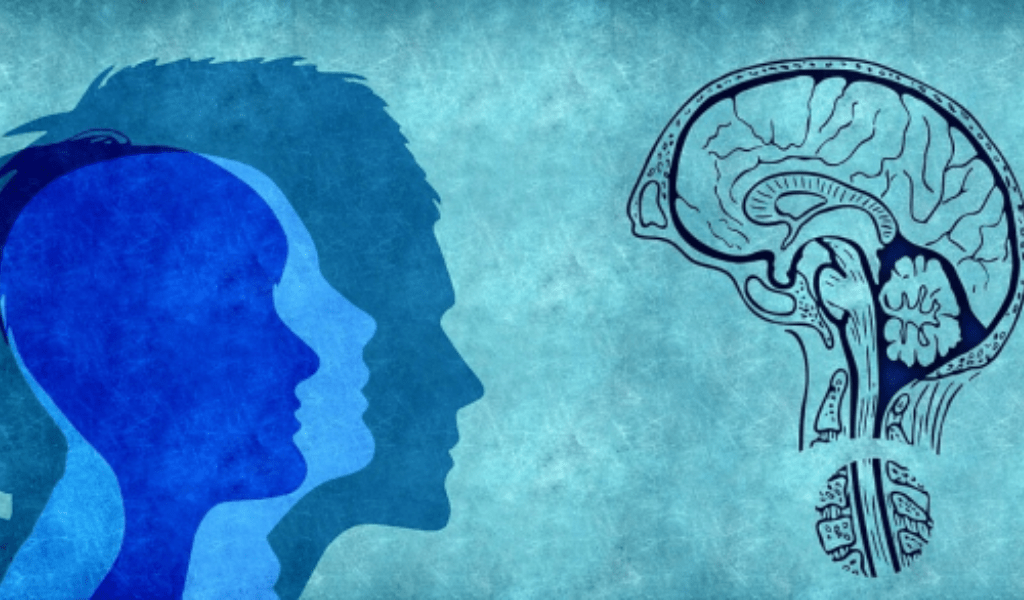Understanding Brain Change and its Impact on Cognitive Function
The human brain is a complex organ that plays a critical role in our cognitive abilities, including memory, decision- making, and problem-solving. As we age, the brain undergoes various changes that can affect our cognitive function. In this article, we will explore the concept of brain change, its implications for cognitive abilities, and strategies for adapting to these changes.
1. An Overview of Brain Change
The process of brain change, also known as neuroplasticity, refers to the brain’s ability to adapt and reorganize itself in response to internal and external stimuli. It involves both functional and structural changes in the neural networks of the brain. While certain areas of the brain may shrink with age, the brain retains its ability to create new connections and reorganize existing ones.
1.1 Types of Neuroplasticity
Neuroplasticity can be classified into two main types: functional plasticity and structural plasticity. Functional plasticity refers to the brain’s ability to compensate for damage by reallocating functions to undamaged areas. On the other hand, structural plasticity involves physical changes in the brain’s structure as a result of learning and experience.
1.2 The Brain’s Ability to Learn and Adapt
Contrary to earlier beliefs, the brain continues to change and adapt throughout our lives. It was once thought that neurogenesis, the creation of new neurons, only occurred during infancy and childhood. However, research has shown that the brain can generate new neurons and modify its neural connections, allowing for continued learning and adaptation.
2. The Effects of Brain Change on Cognitive Function
As the brain undergoes changes with age, it can impact various aspects of cognitive function. While some changes are considered normal and expected, others may indicate underlying cognitive decline. Understanding these effects can help individuals and caregivers adapt to and manage cognitive changes effectively.
2.1 Normal Age-Related Cognitive Changes
It is common for older adults to experience certain cognitive changes as a natural part of aging. These changes may include a slight decline in processing speed, difficulty with multitasking, and occasional word-finding difficulties. However, these changes do not significantly impair overall cognitive abilities and can be compensated for with strategies such as giving oneself more time to complete tasks.
2.2 Positive Cognitive Changes in Aging
While aging may bring some cognitive challenges, it can also lead to positive changes in certain areas. Research has shown that older adults often have a larger vocabulary and a deeper understanding of word meanings compared to younger adults. This is attributed to the accumulation of knowledge and experiences over a lifetime. Older adults can leverage their extensive knowledge and apply it to various tasks and situations.
2.3 Cognitive Super Agers
Some older adults, known as cognitive super agers, exhibit exceptional cognitive abilities that defy the common assumption of age-related cognitive decline. These individuals, often in their 80s or 90s, have memory performance comparable to individuals 20 to 30 years younger. Researchers are studying cognitive super agers to gain insights into what sets them apart and to develop strategies to prevent or reverse age-related cognitive decline.
3. Understanding Brain Aging and its Mechanisms
To fully comprehend the effects of brain change on cognitive function, it is important to explore the underlying mechanisms of brain aging. Multiple factors contribute to brain aging, including structural changes, altered communication between neurons, reduced blood flow, and increased inflammation. These changes can impact mental functioning and cognitive abilities.
3.1 Structural Changes in the Aging Brain
With age, certain regions of the brain, particularly those involved in learning and complex mental activities, may undergo shrinkage. This shrinkage, known as brain atrophy, can affect cognitive function. However, research has shown that the brain can compensate for these changes through neuroplasticity, allowing for the development of alternative neural pathways.
3.2 Communication Between Neurons
Effective communication between neurons is crucial for optimal brain function. In aging brains, this communication may become less efficient, leading to slower cognitive processing and potential difficulties in memory and learning. However, the brain’s ability to reorganize and create new connections helps mitigate these challenges, enabling individuals to adapt to changing cognitive demands.
3.3 Blood Flow and Inflammation
Reduced blood flow in the brain and increased inflammation are common features of brain aging. These factors can impact cognitive function by compromising the delivery of oxygen and nutrients to brain cells. However, research suggests that lifestyle factors, such as physical activity and a healthy diet, can promote brain health by improving blood flow and reducing inflammation.
4. Managing Brain Change and Promoting Cognitive Health
Understanding brain change and its impact on cognitive function can empower individuals and caregivers to take proactive steps in managing cognitive health. By adopting certain strategies and lifestyle choices, individuals can optimize their brain health and maintain cognitive function as they age.
4.1 Enriching the Environment and Stimulating the Brain
Creating a stimulating environment that offers opportunities for learning, novelty, and challenge can promote brain plasticity. Engaging in activities such as learning a new language, playing musical instruments, traveling, creating art, and reading can support cognitive health and foster the growth of new neural connections.
4.2 Prioritizing Restful Sleep
Sleep plays a vital role in brain health and neuroplasticity. Quality sleep facilitates the consolidation of memories, enhances cognitive performance, and supports overall brain function. Establishing a consistent sleep schedule and creating a conducive sleep environment can promote restful sleep and optimize brain health.
4.3 Regular Physical Exercise
Physical exercise has numerous benefits for brain health and cognitive function. Studies have shown that regular exercise can promote the growth of new neurons, improve blood flow to the brain, and enhance cognitive performance. Engaging in activities such as walking, swimming, dancing, or cycling for at least 150 minutes per week can have significant positive effects on brain health.
4.4 Mindfulness and Mental Stimulation
Practicing mindfulness, which involves being fully present in the moment, can enhance brain plasticity and cognitive function. Mindfulness exercises, such as meditation and deep breathing, promote relaxation and reduce stress, which can have a positive impact on cognitive health. Additionally, engaging in mentally stimulating activities, such as puzzles, crosswords, or learning new skills, can help maintain cognitive abilities and promote neuroplasticity.
5. The Brain-Body Connection and Cognitive Health
Research has increasingly highlighted the connection between physical health and brain health. Lifestyle factors that promote overall physical well-being, such as regular exercise, a healthy diet, not smoking, and engaging in mentally stimulating activities, can also benefit cognitive health.
5.1 The Role of Lifestyle Factors
Adopting a healthy lifestyle that incorporates physical activity, a balanced diet, and mental stimulation can help protect the brain and reduce the risk of cognitive decline. Observational studies have shown that individuals who engage in multiple healthy behaviors have a lower risk of developing Alzheimer’s disease and experience slower rates of cognitive decline.
5.2 The Impact of Cardiovascular Health
Maintaining good cardiovascular health is crucial for brain health. Risk factors such as high blood pressure, diabetes, and smoking have been associated with an increased risk of cognitive decline and dementia. By managing these risk factors, individuals can support brain health and potentially reduce the risk of cognitive impairment.
6. Seeking Professional Guidance
If you or a loved one are experiencing changes in cognitive function, it is important to seek professional guidance. Healthcare providers, including dementia care specialists, can provide assessments, guidance, and support tailored to individual needs. They can offer strategies for managing cognitive changes and provide resources to enhance communication and caregiving for individuals with brain change.
6.1 Expert Insights: Teepa Snow and Effective Communication Strategies
Teepa Snow, a renowned dementia care specialist, emphasizes the importance of effective communication strategies when caring for individuals with brain change. Her expertise, showcased in interviews and podcasts such as Brian Levy’s Manchester Living Podcast, provides valuable insights into understanding and adapting to the needs of individuals with cognitive decline.
Conclusion
Brain change is a natural part of the aging process, impacting various aspects of cognitive function. However, the brain retains its ability to adapt and reorganize through neuroplasticity. By understanding brain change, adopting healthy lifestyle choices, and seeking professional guidance when needed, individuals can optimize their cognitive health and adapt to the changes that come with aging. Embracing neuroplasticity allows for continued learning, growth, and wellbeing throughout life, promoting a fulfilling and vibrant cognitive experience.
Remember, brain change is a part of life, but it does not define our potential for growth and adaptation. With the right strategies and support, we can navigate the journey of aging while maintaining cognitive vitality.




